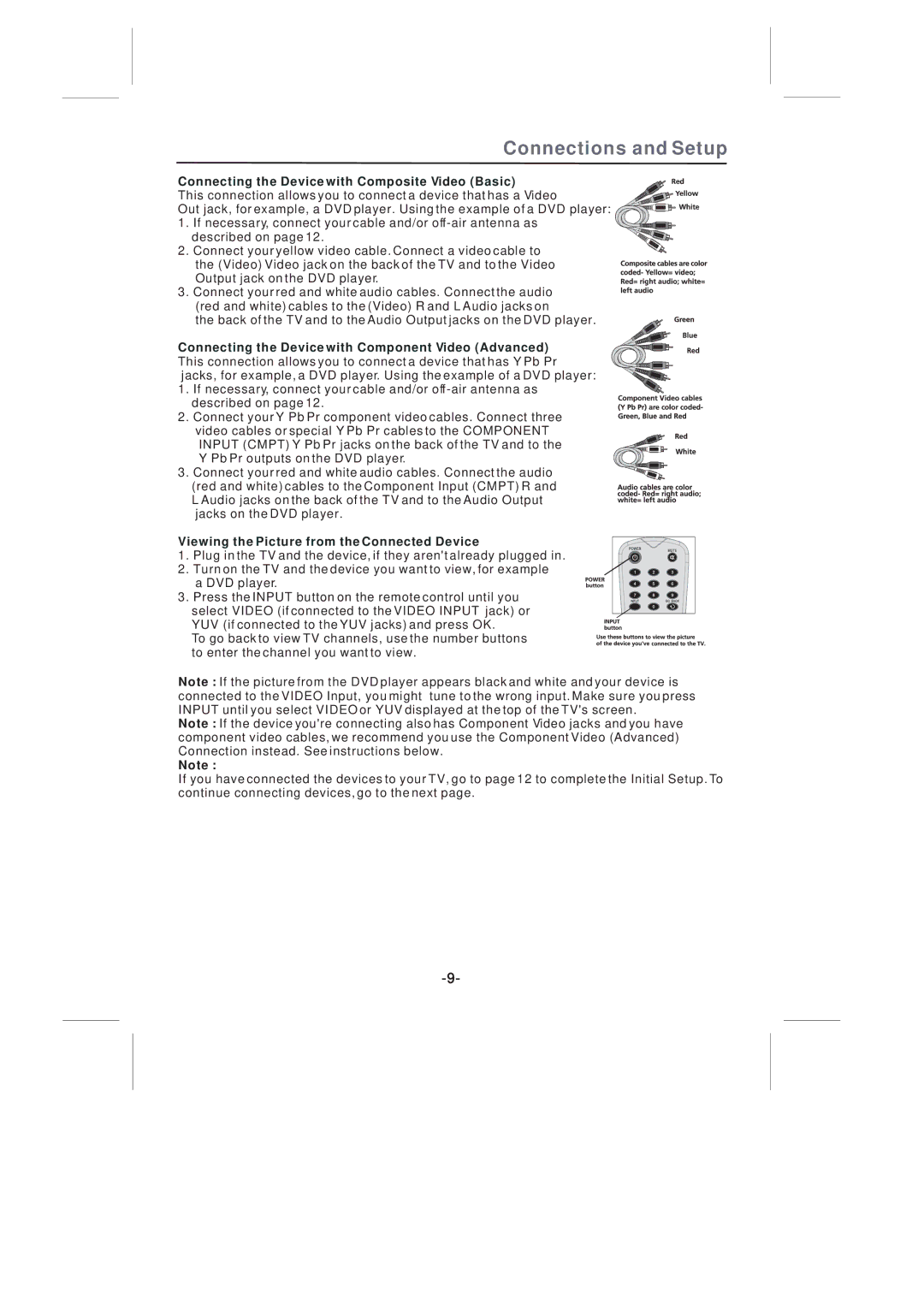
Connections and Setup
Connecting the Device with Composite Video (Basic)
This connection allows you to connect a device that has a Video![]()
![]()
![]()
![]()
![]()
![]()
![]()
![]()
![]() Out jack, for example, a DVD player. Using the example of a DVD player:
Out jack, for example, a DVD player. Using the example of a DVD player: ![]()
![]()
![]()
![]()
![]()
![]()
![]()
![]()
![]()
![]()
![]()
![]()
![]()
![]()
![]() 1. If necessary, connect your cable and/or
1. If necessary, connect your cable and/or ![]()
![]()
![]()
![]()
![]()
![]()
![]()
![]()
![]()
![]()
![]()
![]()
![]()
described on page 12.
2. Connect your yellow video cable. Connect a video cable to the (Video) Video jack on the back of the TV and to the Video Output jack on the DVD player.
3. Connect your red and white audio cables. Connect the audio (red and white) cables to the (Video) R and L Audio jacks on
the back of the TV and to the Audio Output jacks on the DVD player.
Connecting the Device with Component Video (Advanced)
This connection allows you to connect a device that has Y Pb Pr jacks, for example, a DVD player. Using the example of a DVD player: 1. If necessary, connect your cable and/or
described on page 12.
2. Connect your Y Pb Pr component video cables. Connect three video cables or special Y Pb Pr cables to the COMPONENT INPUT (CMPT) Y Pb Pr jacks on the back of the TV and to the Y Pb Pr outputs on the DVD player.
3. Connect your red and white audio cables. Connect the audio (red and white) cables to the Component Input (CMPT) R and L Audio jacks on the back of the TV and to the Audio Output jacks on the DVD player.
Viewing the Picture from the Connected Device
1. Plug in the TV and the device, if they aren't already plugged in.
2. Turn on the TV and the device you want to view, for example a DVD player.
3. Press the INPUT button on the remote control until you select VIDEO (if connected to the VIDEO INPUT jack) or YUV (if connected to the YUV jacks) and press OK.
To go back to view TV channels, use the number buttons to enter the channel you want to view.
Note : If the picture from the DVD player appears black and white and your device is connected to the VIDEO Input, you might tune to the wrong input. Make sure you press INPUT until you select VIDEO or YUV displayed at the top of the TV's screen.
Note : If the device you're connecting also has Component Video jacks and you have component video cables, we recommend you use the Component Video (Advanced) Connection instead. See instructions below.
Note :
If you have connected the devices to your TV, go to page 12 to complete the Initial Setup. To continue connecting devices, go to the next page.
